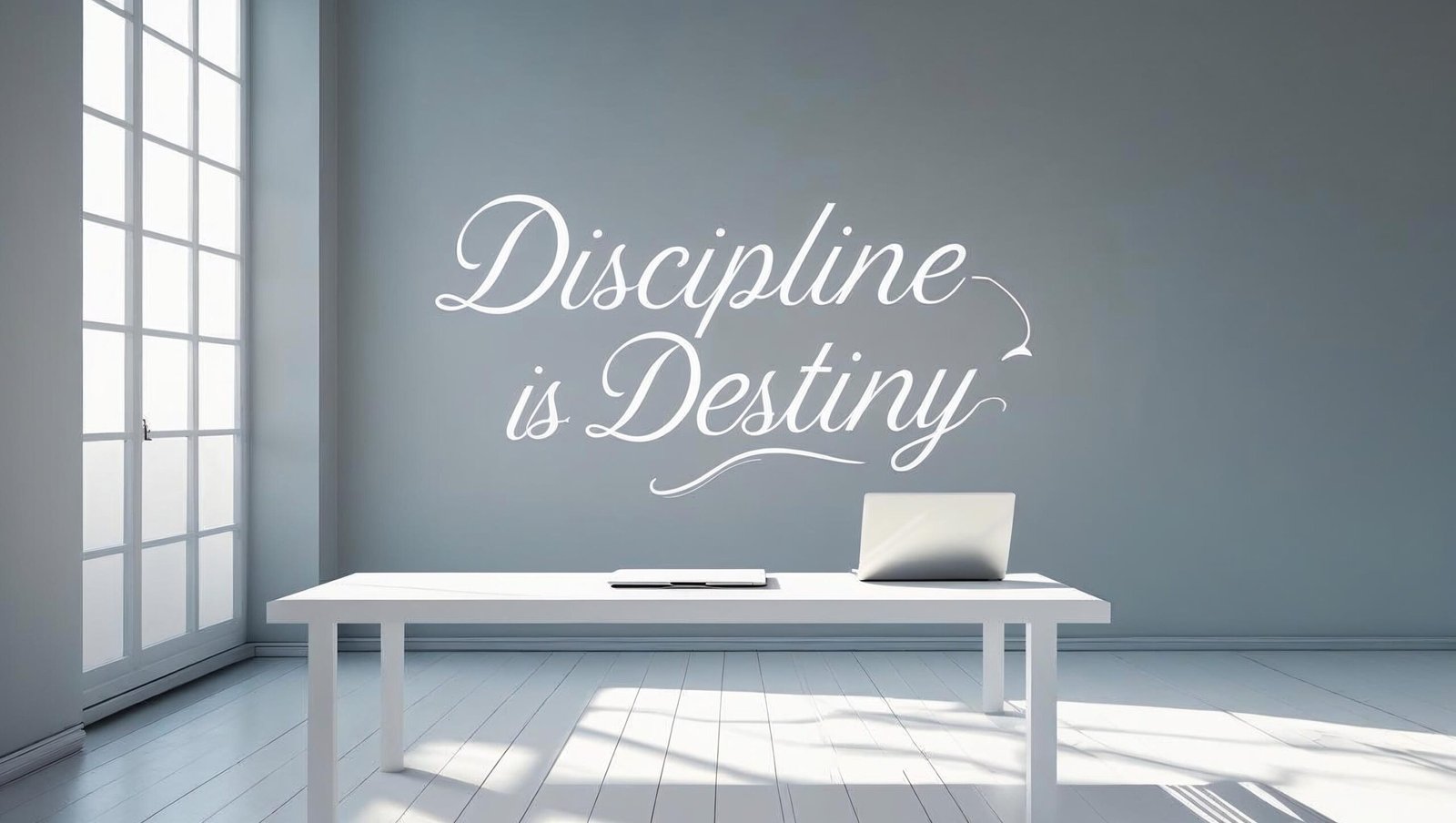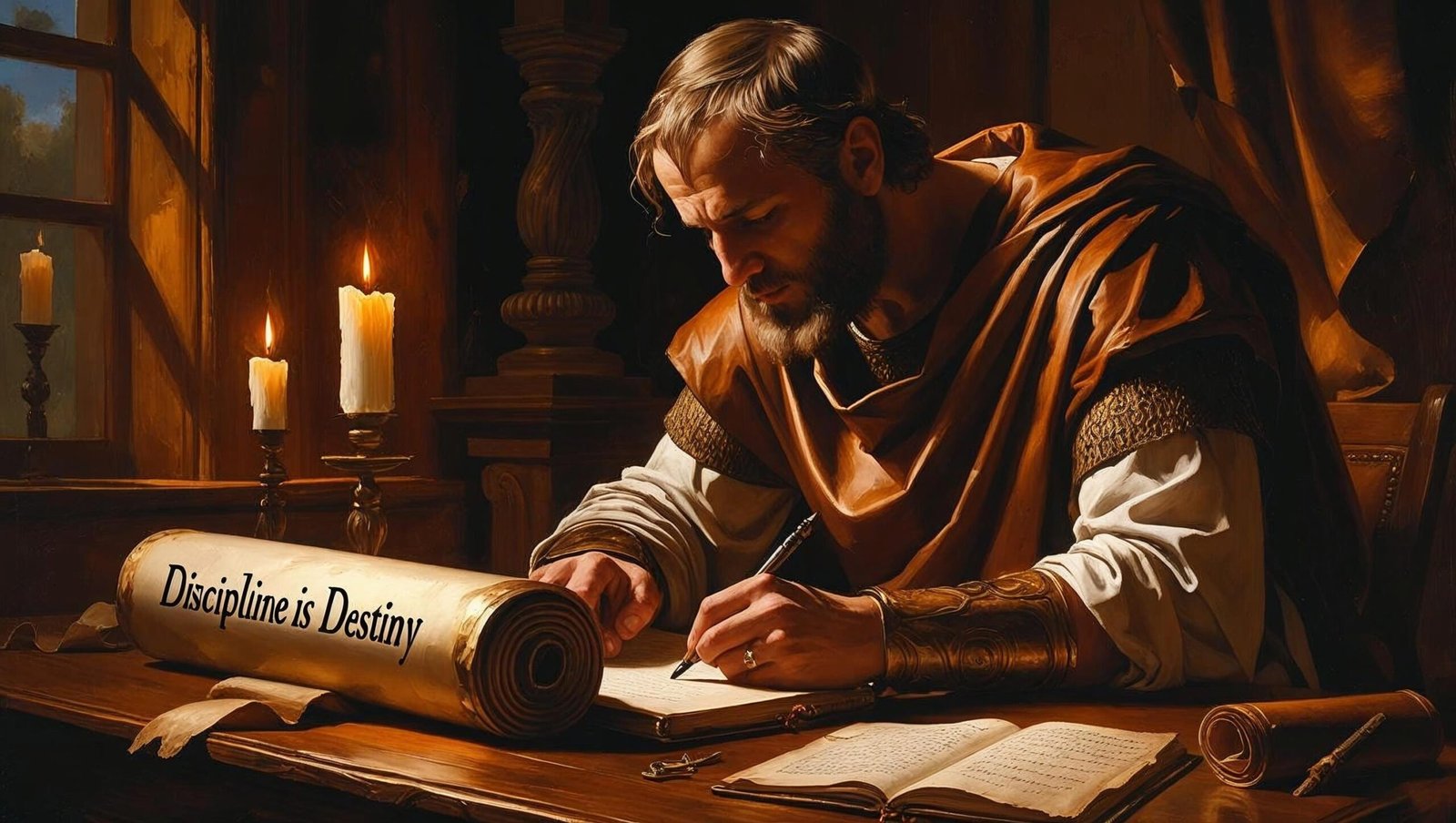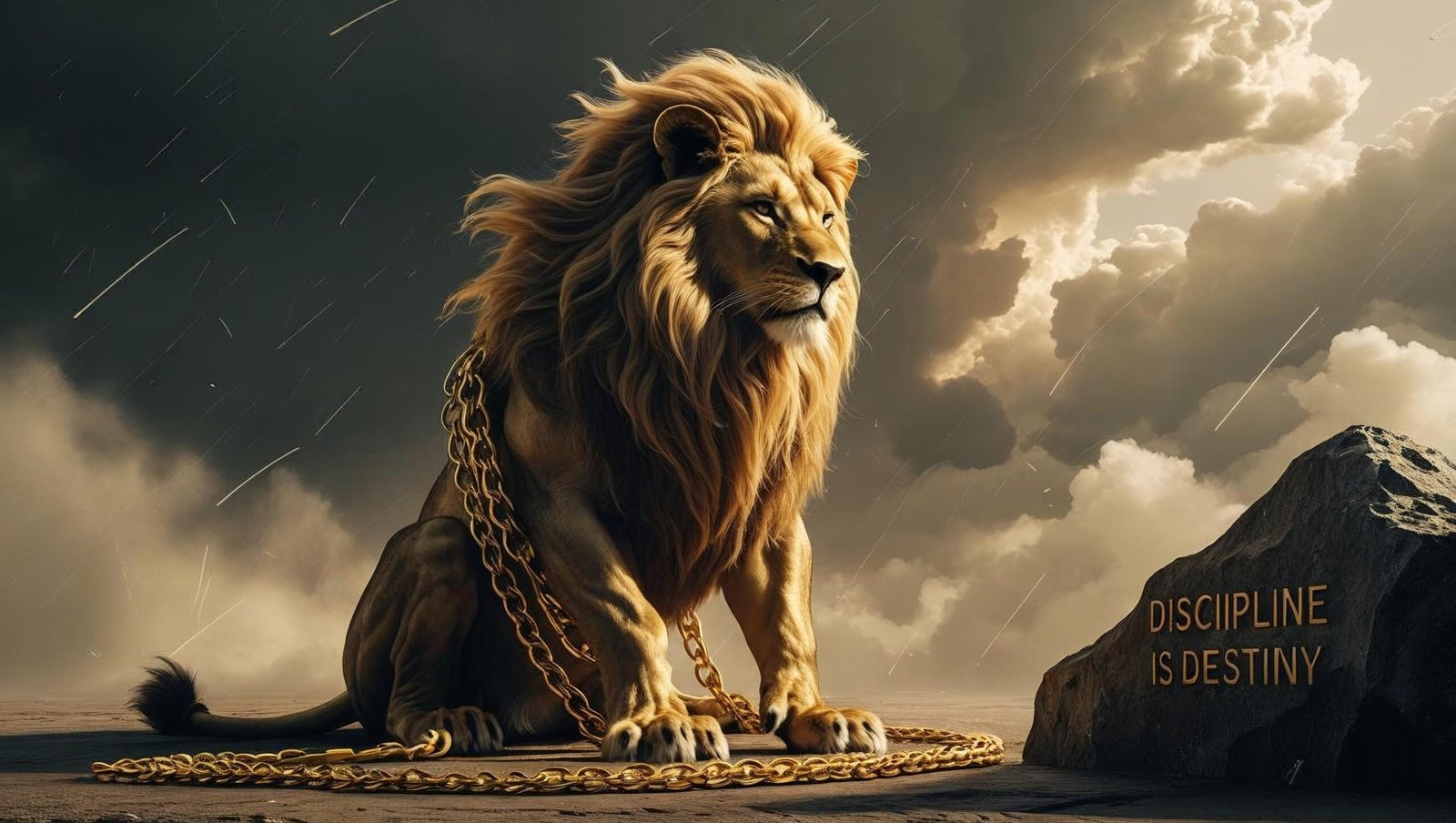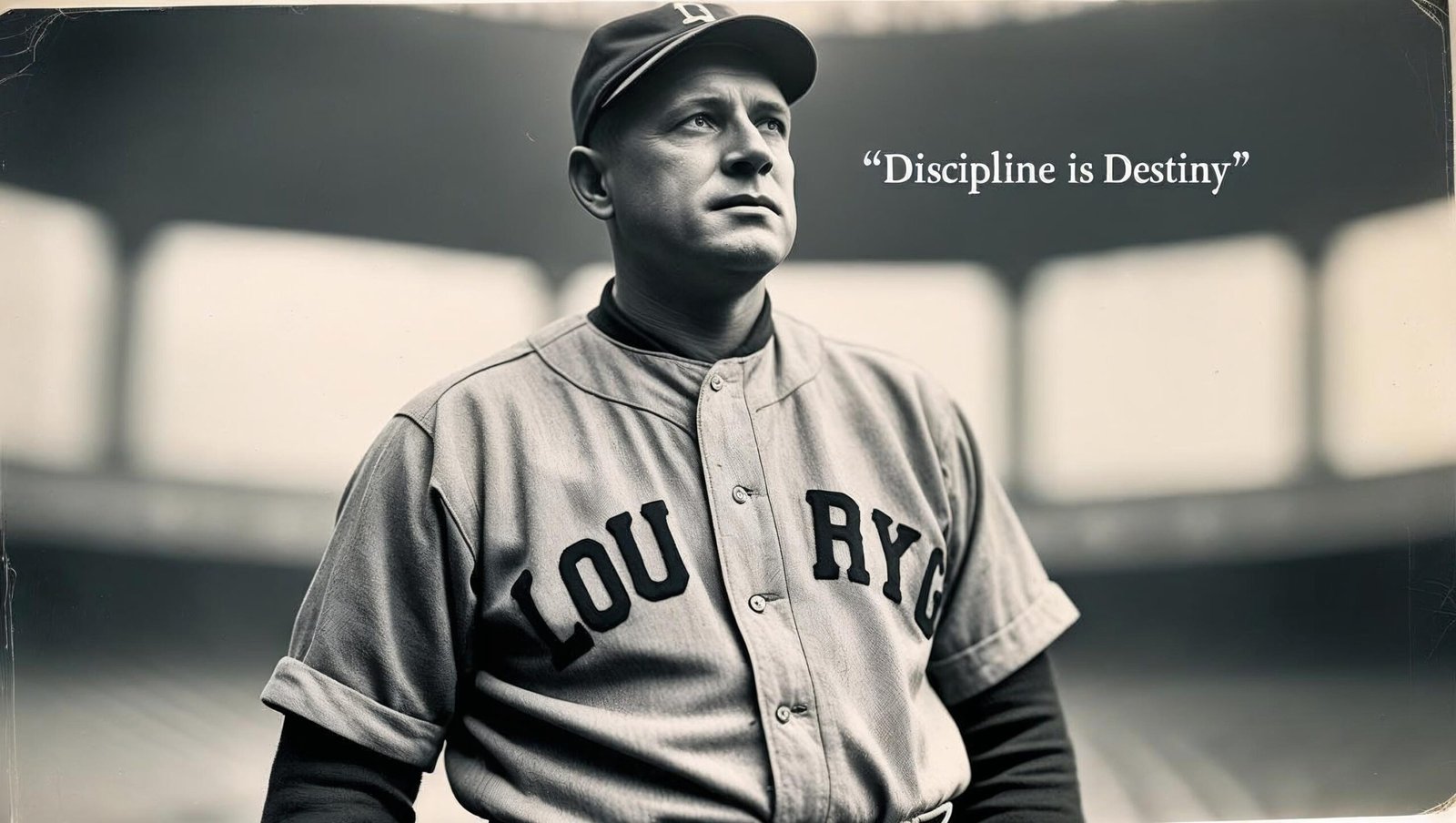Introduction
An In-Depth Book Review on Stoicism, Self-Mastery, and Personal Greatness
Among the greatest virtues admired throughout human history, none holds the quiet, consistent power of discipline. In Discipline Is Destiny, author Ryan Holiday brings this virtue to the forefront—arguing that discipline is not just a method of control, but the very path to a purposeful life.
This book is the second in his acclaimed “Stoic Virtue” series, following Courage Is Calling. In Discipline Is Destiny, Holiday distills ancient wisdom, historical examples, and modern insight into a blueprint for mastering the self. Through captivating storytelling and clear Stoic philosophy, he reminds us that greatness is not an act—it is a practice.
This review will explore the essence, structure, and practical takeaways of Discipline Is Destiny, helping you decide whether this book belongs in your personal library.

What Is Discipline Is Destiny Really About?
At its heart, Discipline Is Destiny is a meditation on how the disciplined life leads to freedom and fulfillment. Ryan Holiday defines discipline not as mere restriction but as an internal compass—one that helps align our actions with our values. The disciplined person is not the one who suffers, but the one who has mastered the art of making good choices even when it’s difficult.
By invoking stories of historical figures—from Marcus Aurelius to Queen Elizabeth II, Lou Gehrig to Angela Merkel—Holiday proves that the one thread tying greatness together is discipline. Discipline Is Destiny makes a bold claim: that the ability to say “no,” to act deliberately, and to live with self-control is what separates the ordinary from the extraordinary.
The Structure of the Book
Holiday divides Discipline Is Destiny into three essential domains:
-
The Body – Health, energy, physical restraint, and daily routines
-
The Mind – Impulse control, thought discipline, attention, and focus
-
The Soul – Integrity, moral discipline, values, and ultimate purpose
Each chapter is concise, philosophical, and reflective—perfect for reading slowly, journaling, or daily inspiration. Rather than a linear guide, the book feels like a mosaic of timeless ideas, skillfully assembled.
1. Discipline Is Freedom
One of the paradoxes in Discipline Is Destiny is that freedom does not come from indulgence, but from discipline. True liberty arises when we are no longer slaves to impulse, desire, or distractions. Holiday illustrates this through metaphors like Ulysses tying himself to the mast to resist the Sirens—showing how self-imposed boundaries can protect us from ruin.
Discipline is not punishment; it is protection. It is the very foundation upon which creativity, mastery, and peace of mind rest.
2. Take Care of the Body
Holiday begins with the body, showing how physical habits shape the rest of our lives. From sleep to diet to movement, the body is the first battlefield of discipline. Discipline Is Destiny asserts that leaders and thinkers—from Churchill to Roosevelt—maintained strength of mind through discipline of body.
When our body is well-governed, our energy rises, and our capacity to lead, love, and create multiplies.
3. Build a Repeatable Routine
One of the most practical messages of Discipline Is Destiny is the power of routine. Holiday reminds us that success is not found in sudden bursts of excellence, but in daily consistency. Think of Stephen King’s writing schedule or Da Vinci’s work ethic—genius emerges from the ordinary through habit.
A disciplined routine is like scaffolding for the soul. It frees us from having to make a thousand trivial decisions every day and reserves our willpower for what truly matters.
4. Restrain Impulses
The disciplined mind must act like a gatekeeper. In Discipline Is Destiny, Holiday speaks of mastering anger, envy, gluttony, and distraction. These enemies lurk within us all. He references Abraham Lincoln’s practice of writing unsent angry letters—a method of disciplining his emotions.
Discipline gives us the space to pause before acting. It is not about suppressing emotion, but channeling it into something meaningful and noble.

5. Embrace Difficulty
A central lesson in Discipline Is Destiny is the importance of doing the hard thing. Ryan Holiday insists that comfort kills growth. He encourages us to lean into discomfort—not to seek pain, but to seek growth. Taking the cold shower, facing the fear, working when uninspired—these are moments where character is forged.
Discipline helps us rise early, do the dull task, or show up again after failure. That’s where greatness begins.
6. The Power of Saying No
In today’s hyper-connected, attention-stealing world, saying no is a radical act. Discipline Is Destiny emphasizes that refusal is often more powerful than acceptance. When we say no to distractions, temptations, and ego-driven opportunities, we preserve space for what truly matters.
This power of no is not rejection—it is selection. It is the disciplined focus that made Steve Jobs, Warren Buffett, and J.K. Rowling icons of excellence.
7. Live with Moral Discipline
The final and most noble form of discipline, according to Discipline Is Destiny, is moral. It is the ability to live aligned with values—even when no one is watching. Holiday’s examples include figures like Mahatma Gandhi, Marcus Aurelius, and Cato the Younger, whose personal codes governed every action.
Moral discipline means choosing honesty over gain, patience over reactivity, and purpose over popularity. It is the highest form of inner power.
Best Quotes from Discipline Is Destiny
-
“Discipline is destiny. It is the key to everything.”
-
“Without self-control, we are captives to every passing urge.”
-
“You don’t rise to the level of your goals; you fall to the level of your discipline.”
Each quote is a meditation in itself—a call to action for the reader to rise above mediocrity through daily discipline.

Who Should Read This Book?
Discipline Is Destiny is for:
-
Students who want focus and clarity
-
Entrepreneurs looking for long-term excellence
-
Leaders in pursuit of integrity and moral strength
-
Parents and teachers guiding the next generation
-
Anyone tired of distraction, seeking real purpose
Whether you’re a high performer or just starting your self-improvement journey, Discipline Is Destiny offers principles to live better—starting now.
Discipline in the Digital Age
Modern life is saturated with distractions—notifications, social media, binge content, endless emails. In this whirlwind of attention-grabbing stimuli, the power of discipline becomes even more relevant. The very fact that our devices constantly invite us to escape reality reinforces the need for a renewed focus on deliberate living.
Discipline Is Destiny resonates because it doesn’t call for abandoning technology but rather calls for mastering it. Ryan Holiday’s philosophy is that tools should serve you, not enslave you. When we use apps intentionally, when we impose limits on screen time, when we choose to focus deeply on one task instead of twenty—we begin reclaiming control.
Technology has advanced, but human wiring hasn’t changed much. Our susceptibility to dopamine-driven impulses remains. So, in the age of information, discipline becomes the filter. It helps us distinguish the essential from the trivial, the urgent from the important.
Stoicism as a Daily Practice
A unique element of Discipline Is Destiny is how it revives Stoicism not as an abstract philosophy, but as a living, breathing practice. It’s about doing things daily—whether you feel like it or not. Stoicism emphasizes what is within our control and letting go of what isn’t. Discipline, in this sense, is the Stoic’s weapon.
Holiday connects this mindset with figures like Epictetus, who famously said, “No man is free who is not master of himself.” In today’s language, this means saying no to procrastination, no to toxic habits, and yes to responsibilities—even when they feel dull or thankless.
A disciplined Stoic life is not robotic—it is intentional. You feel the temptation, you feel the frustration, yet you choose to rise above it. That’s true courage.
Examples from History That Shape the Modern Reader
While many self-help books talk in theories, Discipline Is Destiny grounds its messages in biographical depth. Holiday excels in storytelling. His accounts of great lives—Queen Elizabeth’s stoicism in wartime, Napoleon’s self-control during his rise, and Lou Gehrig’s quiet endurance despite illness—aren’t just inspiring, they’re practical.
Each person mentioned lived with flaws, yet mastered themselves where it mattered most. These stories reinforce that discipline is not about perfection; it is about progress. It’s about showing up, over and over, until excellence becomes your baseline.
This lens helps readers understand that we too can be heroic—not by headline-worthy feats but by resisting daily temptations, holding onto integrity, and keeping our promises.
Discipline in Relationships and Leadership
One often-overlooked dimension of discipline is how it shapes our relationships. Discipline Is Destiny subtly explores how patience, empathy, and emotional regulation are forms of interpersonal discipline. Controlling your tongue during an argument, listening attentively instead of speaking over someone, choosing kindness in the face of hostility—these are acts of disciplined maturity.
Leadership, too, is tested not when things go smoothly, but when things fall apart. Think of Abraham Lincoln leading a divided nation with grace or Marcus Aurelius maintaining calm in the midst of plague and political unrest. These leaders didn’t just impose discipline—they embodied it. They lived the principle that the leader must control themselves before they can hope to guide others.

Discipline Is Not Deprivation
Holiday wisely tackles the myth that discipline equals suffering. Many resist the word because it conjures images of restriction, boredom, or martyrdom. But Discipline Is Destiny recasts discipline as a form of self-love. It’s choosing your long-term happiness over a short-term hit of pleasure.
Choosing a salad over fast food, saying no to that extra drink, going for a walk instead of doom-scrolling—these are not denials, but affirmations. They affirm that your goals, health, and integrity matter more than fleeting gratification.
This concept aligns with the Stoic view that real pleasure comes from a life well-lived, not a momentary indulgence. A disciplined life is not one that lacks fun or passion—it is one where joy arises from alignment between action and purpose.
Practical Strategies for Building Discipline
Here are a few actionable steps inspired by Discipline Is Destiny:
1. Time-Blocking
Schedule your day into specific blocks. Morning writing? Afternoon meetings? Evening rest? Discipline flows when your energy matches your calendar.
2. The Rule of No
Say no to three things each day that don’t serve your goals. Whether it’s an unnecessary meeting or a dopamine-draining habit, build the muscle of refusal.
3. Track a Habit
Start small. Read 10 pages daily. Walk 5,000 steps. Meditate for 2 minutes. Discipline is built like a wall—brick by brick.
4. Start Your Day with Resistance
Begin your morning with something difficult. A cold shower, a workout, or 30 minutes of writing. This sets the tone that you are in control.
5. Visualize the Ideal Self
Before bed, reflect: “Did I live up to the person I want to become?” Visualizing builds alignment and integrity over time.
Modern-Day Figures Who Embody the Message
Ryan Holiday points toward historical titans, but we can also look to the present. Consider:
-
Jocko Willink, the retired Navy SEAL, whose 4:30 AM wake-up routine and leadership principles mirror every lesson in Discipline Is Destiny.
-
Cal Newport, who promotes “Deep Work” and digital minimalism as methods of cultivating a focused, intentional life.
-
James Clear, whose book Atomic Habits reinforces how small, consistent actions shape destiny.
All these thought leaders echo what Discipline Is Destiny makes so vivid: the life we want is on the other side of effort, structure, and intention.
When Discipline Fails: What Then?
Holiday doesn’t romanticize discipline to the point of perfection. He understands setbacks. The disciplined life isn’t a straight line—it’s a winding path filled with missteps. What matters is returning to the path, again and again.
This principle liberates the reader from guilt and shame. Missed your routine? Start fresh tomorrow. Gave in to distraction? Acknowledge it, and regain focus. Each moment offers a fresh decision. Discipline Is Destiny reminds us that our future isn’t determined by the last mistake, but by our next choice.
How This Book Changed My Perspective
As a reader, Discipline Is Destiny challenged me to rethink how I structure my time, the content I consume, and the goals I set. I began waking earlier, tracking daily habits, and spending less time on social media. Not because the book guilt-tripped me—but because it made me believe a better life was truly within reach.
Holiday’s language is both grounded and inspirational. He writes as a fellow traveler, not a guru. His style is firm but never arrogant, inviting you into a wiser, fuller way of living.

Why This Book Matters Now More Than Ever
In an age obsessed with speed, fame, and shortcuts, Discipline Is Destiny dares to say that the slow, steady, principled route is still the most noble path. It reminds us that real power lies not in followers or fame but in governing oneself.
From climate change to war, political polarization to personal burnout—the world today needs more people rooted in self-control, compassion, and clarity. This book, in that sense, is not merely personal development—it’s civic duty.
Final Reflections
As Ryan Holiday beautifully captures in his narrative, Discipline Is Destiny is not a title—it is a truth. It’s a guiding principle that, when practiced over time, leads not just to success but to serenity. In mastering ourselves, we meet our destiny—not with force, but with purpose.
This extended reflection has aimed to peel back more layers of the book’s wisdom and its application. Whether you are a student, creator, entrepreneur, or simply someone seeking more order in the chaos—this book will help you return to what matters most.
FAQs About Discipline Is Destiny
Q1: Is this book part of a series?
Yes, it’s the second installment in Ryan Holiday’s Stoic Virtue series.
Q2: Can I read it without reading the first one?
Absolutely. Each book stands alone, though they complement one another.
Q3: Is this book more motivational or philosophical?
It is both—a fusion of timeless philosophy with actionable reflection.
Q4: How long is the book?
Roughly 300 pages, with short digestible chapters ideal for daily reading.
Q5: Is it suitable for non-Stoics?
Yes. Though rooted in Stoicism, its insights are universal.
Final Thoughts and Conclusion
Discipline Is Destiny is a powerful reflection on what it truly means to live a meaningful life. It reminds us that the disciplined person is not the rigid one, but the free one. Through consistent practice, moral clarity, and physical mastery, we unlock the gates to our highest self.
Ryan Holiday’s writing invites us not just to read, but to act. Every page is an opportunity to sharpen our self-awareness, reinforce our habits, and walk with integrity.
In a world of shortcuts and superficiality, Discipline Is Destiny is a call to the long game—to choose what is right over what is easy. It is a reminder that the greatest achievements are not made in moments of inspiration, but in months, years, and lifetimes of self-discipline.
📚 Reviewed by Shubhanshu Shekhar
🌐 Visit: shubhanshuinsights.com
💬 What Do You Think?
-
Which part of Discipline Is Destiny inspired you most?
-
How do you practice discipline in your life?
-
Share your thoughts in the comments and let’s grow together!